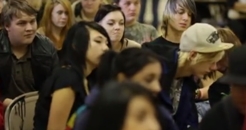 How a community becomes trauma-informed
How a community becomes trauma-informed
A few weeks back, I wrote about Adverse Childhood Experiences (ACEs) and the effect they have on adult health including mental illness, doing time in prison, and work issues, such as absenteeism.
As a reminder, ten childhood traumas (ACEs) were defined in the categories of personal; (abuse and neglect) and family (dysfunction). Data was collected from people and then their personal histories were also examined.
The data revealed that people with high ACE scores are more likely to be violent, to have more marriages, more broken bones, more drug prescriptions, more depression, more auto-immune diseases, and more work absences.
The stress of severe and chronic childhood trauma releases toxic stress hormones that physically damage a child’s developing brain and children with toxic stress live much of their lives in fight, flight or fright (freeze) mode. They fall behind in school or fail to develop healthy relationships with peers or create problems with teachers and principals because they are unable to trust adults.
With despair, guilt and frustration pecking away at their psyches, they often find solace in food, alcohol, tobacco, methamphetamine, inappropriate sex, high-risk sports, and/or work and over-achievement. They don’t regard these coping methods as problems. Consciously or unconsciously, they use them as solutions to escape from depression, anxiety, anger, fear and shame.
With the results of all this research, trauma-informed practices are rising in the U.S., Canada, and countries in Europe, Asia, and Central and South America in schools, prisons, mental clinics and hospitals, etc. The results of the new approach are very encouraging.
So we need to ask questions about how could we help our communities and institutions to be 'trauma-informed'?
Here is the story of the community of Walla Walla in Washington State, USA who have gone through this process over the last 10 years.
They pursued the question of "What information, if it were flowing through the people of their community, would start them on a journey together toward really strong, healthy living?".
They discovered the neuroscience and the ACE Study and for 10 years, they navigated an explosion of education, of dialogue, of community-building, etc.
They built a community that's conversant in ACEs, and brain development, and resilience. They formed a Children's Resilience Initiative (now Community Resilience Initiative) to teach community leaders about ACEs. This was to shift the way they looked at children - from "what's wrong with this child" to "what has this child gone through?"
With this knowledge, community agencies in Walla Walla began to create new solutions to address problems like; crime, substance abuse, teen pregnancy, chronic disease, integrating the principles and these ideas into the good work that they were already doing.
Doctors began talking to parents and guardians about ACEs and their life-long impacts. Expectant parents were given material that they could take home. Teaching was integrated into birthing classes. Nursery teachers were trained in the principles.
Police officers began emphasising community relations. Staff at the local juvenile justice centre were trained including detention staff. They moved from punishment mode where they take points away from kids when they do something wrong to an empathic response, giving them points when they do things right.
Educators began to seek the cause of problem behaviour. Instead of punitive discipline when children misbehave they find out the cause and try to create an environment where they start feeling valued, cared for, and then where they start feeling successful.
The outcomes are not only about raising awareness, but to a reduction in ACEs in their childhood population and therefore long-term social change..
Since beginning to implement trauma-informed practices in 2010, the community in Walla Walla have seen:
-
33% reduction in domestic violence
-
59% decrease in youth suicide attempts
-
62% decrease in secondary school drop-outs
Here is a video the community has made:
Could you be the catalyst in your community to do something similar?
The
film producer of the community story has also made a documentary on ACEs called '
Resilience'. The trailer is
here.
Why not host a screening? This can be arranged through
The Resilience Challenge.
Retweet about this article:
Geoff Knott, 04/10/2016